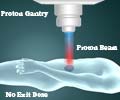
‘Bleeding episodes post-heart attack are strongly related to a new cancer diagnosis. Hence, patients should seek medical advice immediately if they experience bleeding after hospital discharge.’
Read More..Tweet it Now
Following the discharge for an acute coronary syndrome -- heart attack or unstable angina --, patients are typically treated with dual antiplatelet therapy for around one year. Read More..
This treatment inhibits the formation of blood clots but raises the risk of bleeding.
For the study, the researchers retrospectively reviewed the hospital records of 3,644 acute coronary syndrome patients discharged with dual antiplatelet therapy from Alvaro Cunqueiro Hospital.
Patients were followed-up for a median of 56.2 months for bleeding events and cancer.
The researchers analyzed associations between bleeding and the absolute risk of a new cancer diagnosis.
Advertisement
After adjustment for factors known to influence bleeding or cancer, post-discharge bleeding was associated with a threefold higher risk of a new cancer diagnosis.
Advertisement
Spontaneous bleeding with no apparent cause was linked with a four times higher risk of a cancer diagnosis.
"Most of the bleeding episodes in the study were mild. The bleeding events more strongly related with a new cancer diagnosis were severe haemorrhages of unknown cause requiring surgery -- for example digestive bleeding needing endoscopic treatment," Pousa said.
The study was presented at the ESC Congress 2019 in Paris on August 31.
Source-IANS















